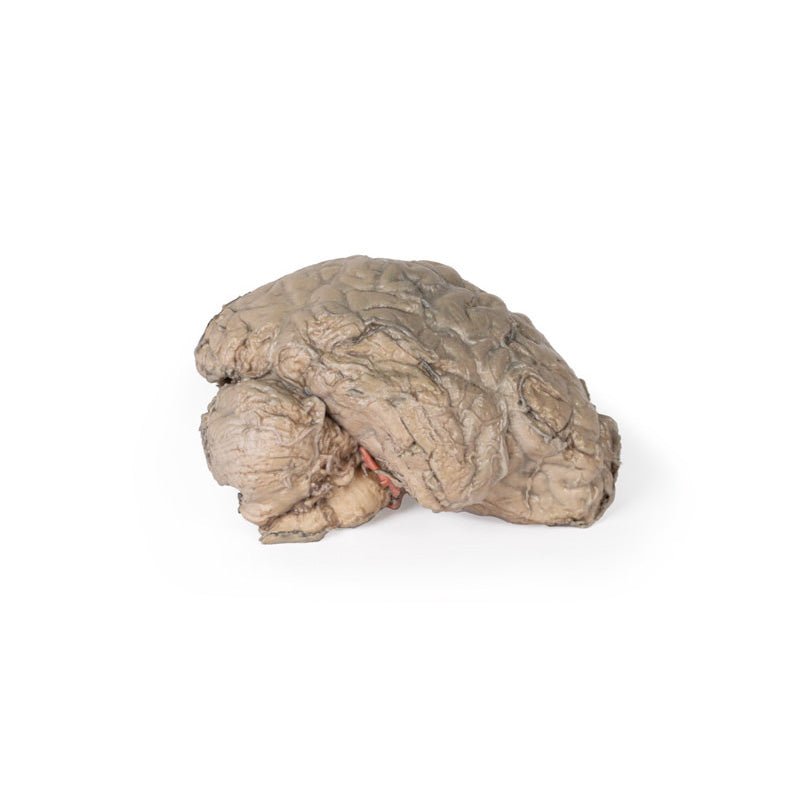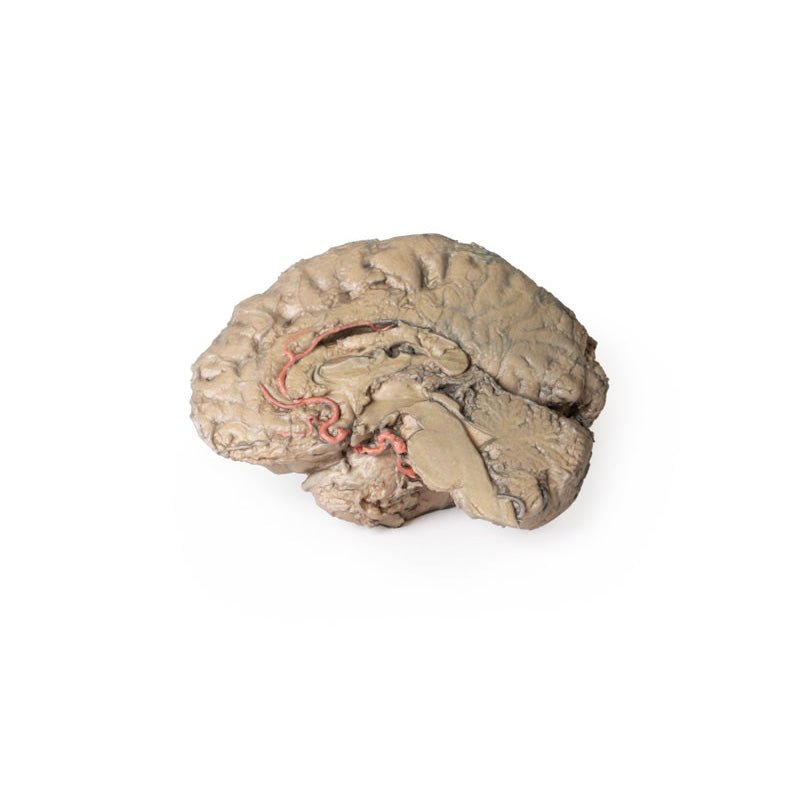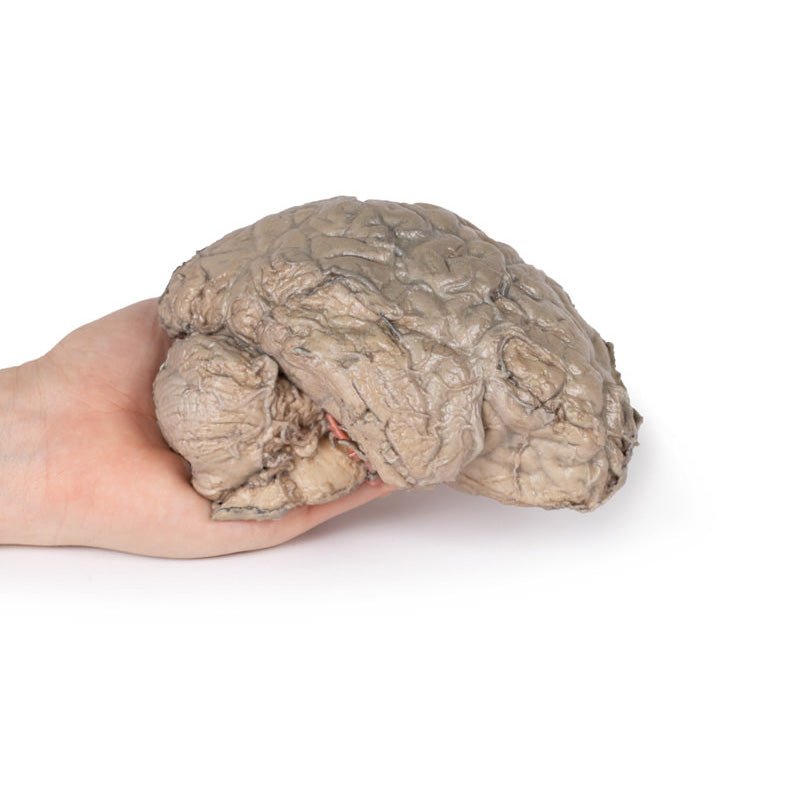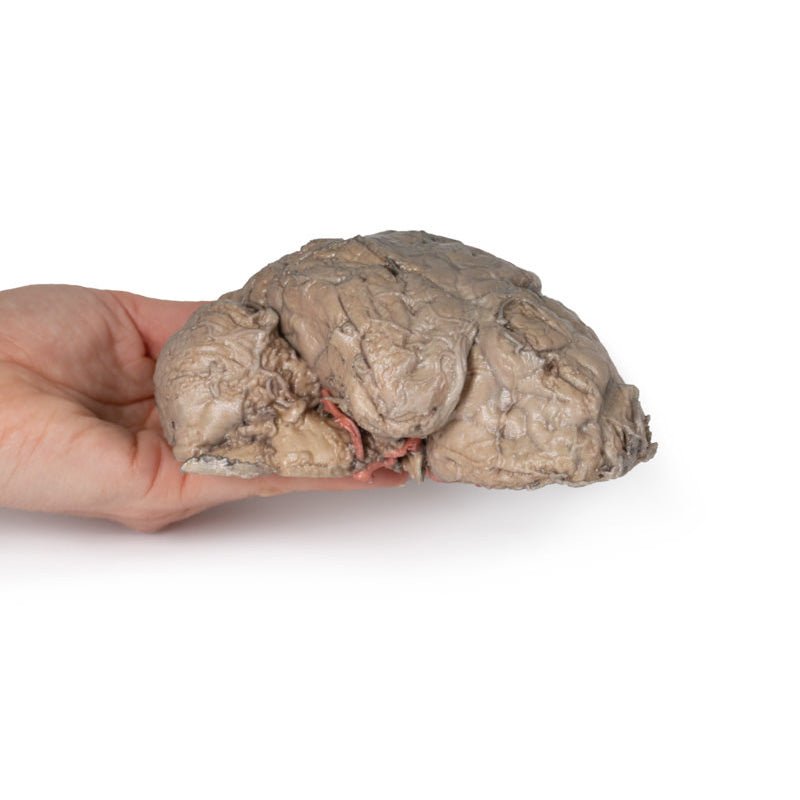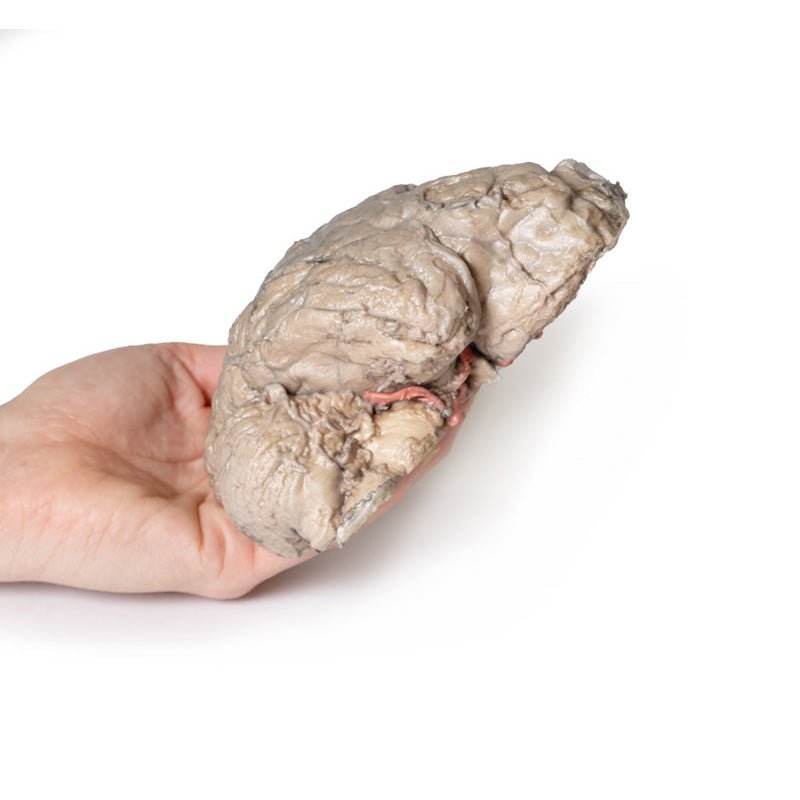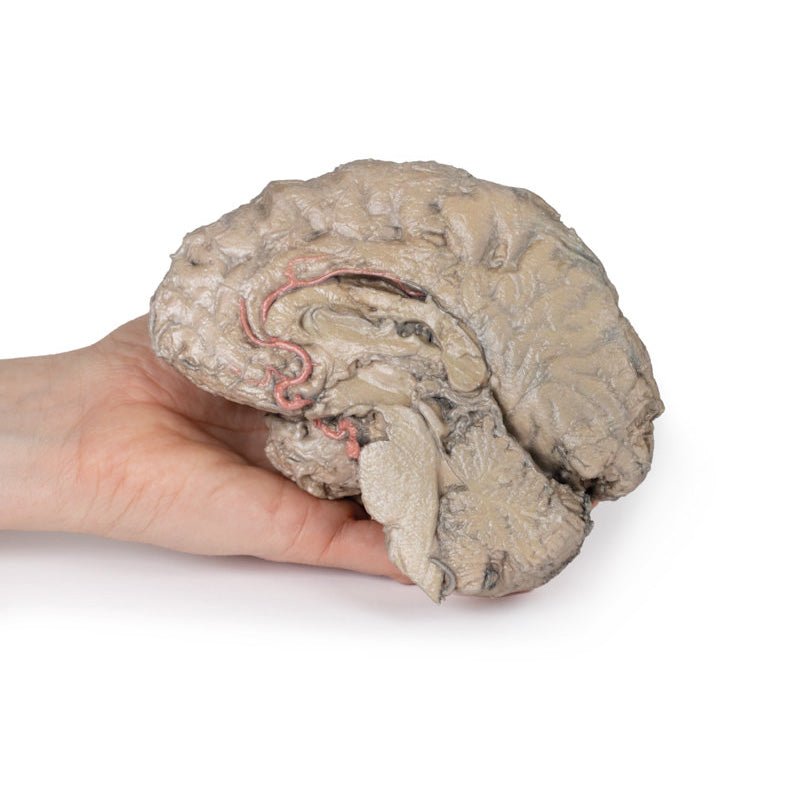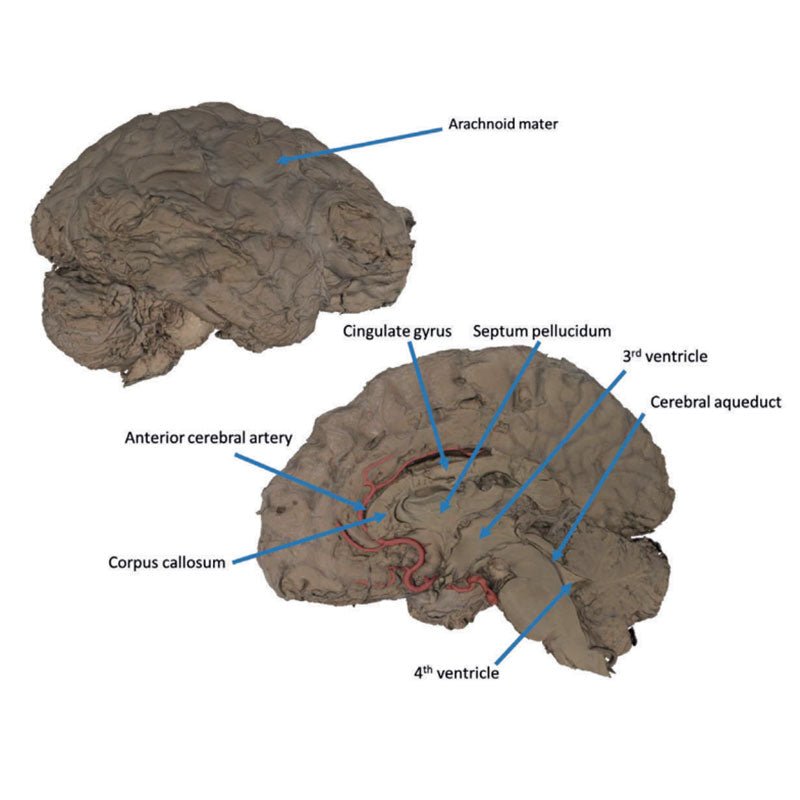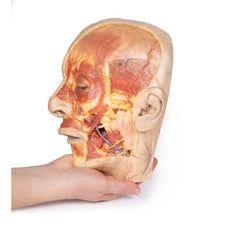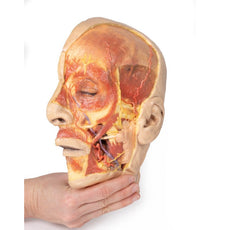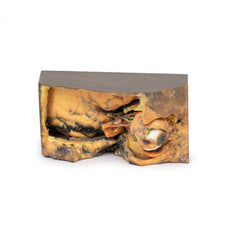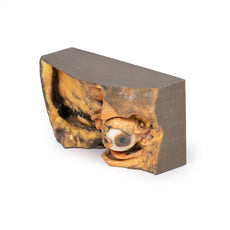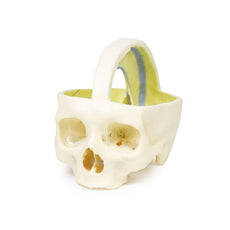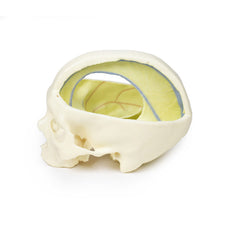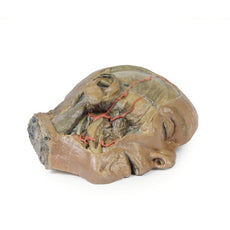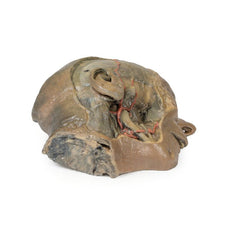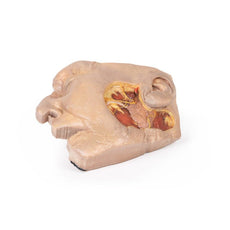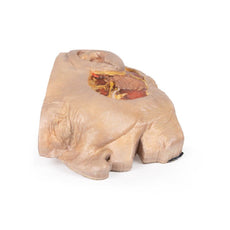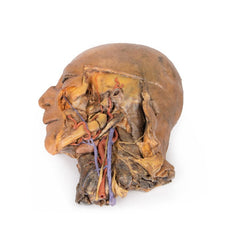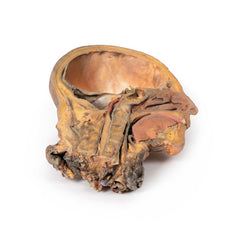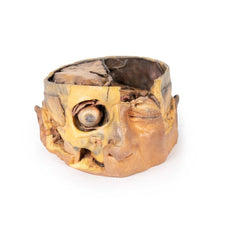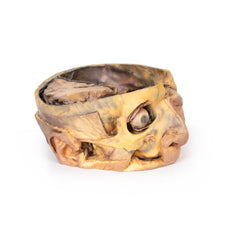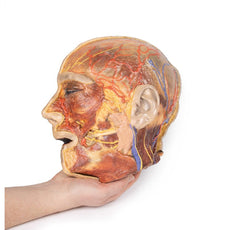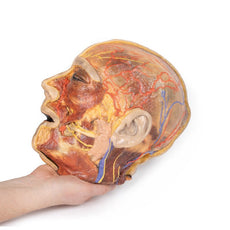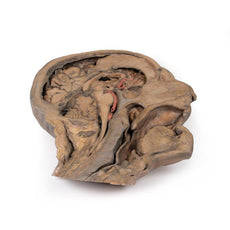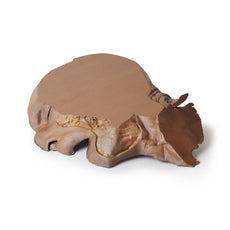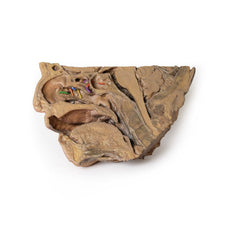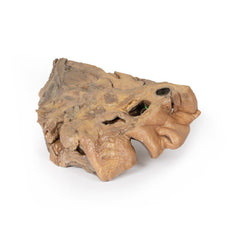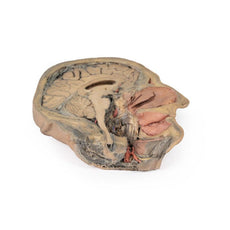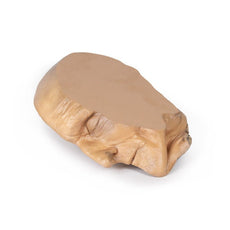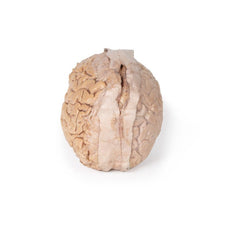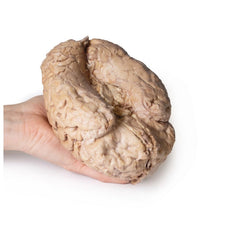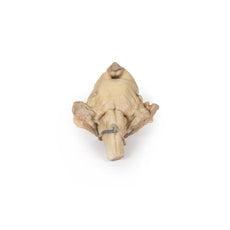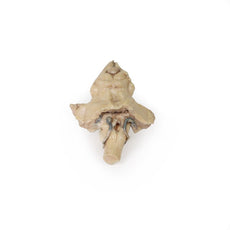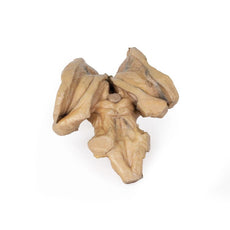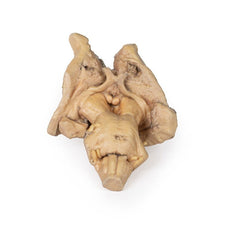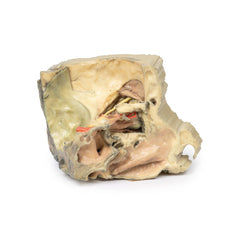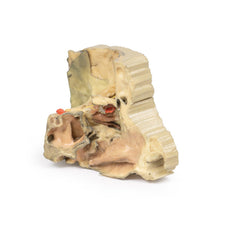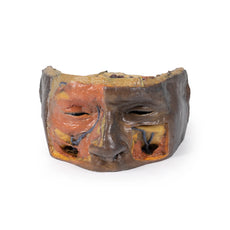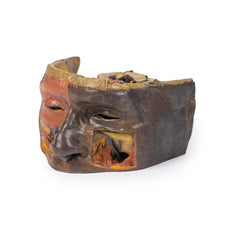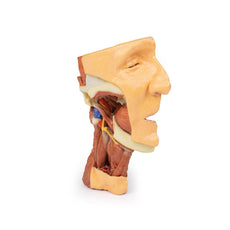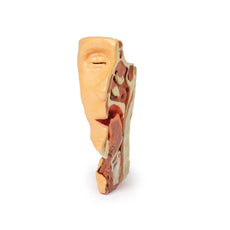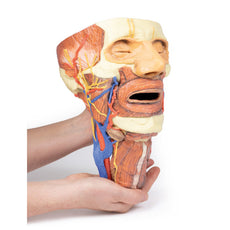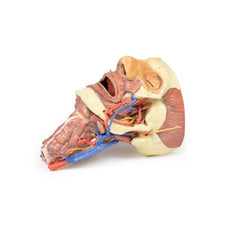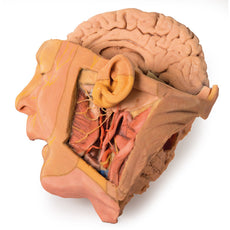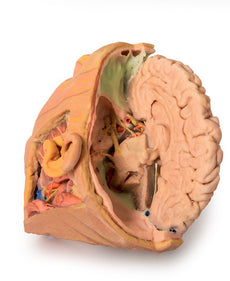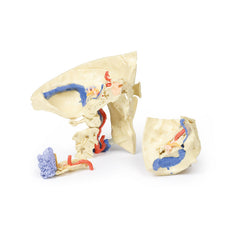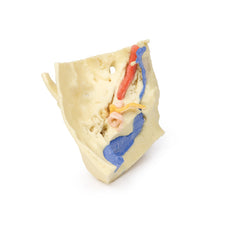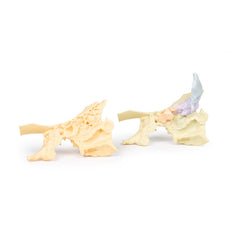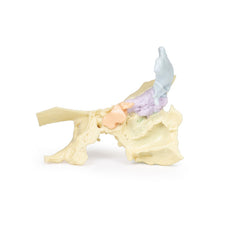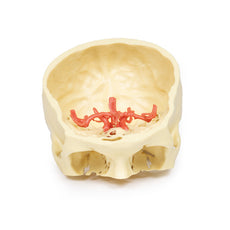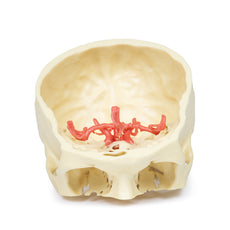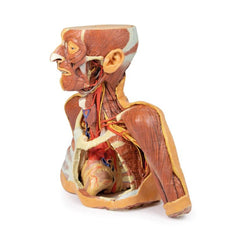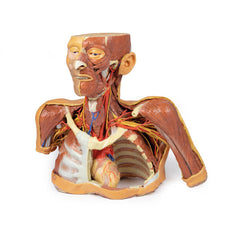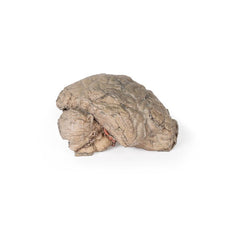Your shopping cart is empty.
3D Printed Brain Hemisection
Item # MP1102Need an estimate?
Click Add To Quote

-
by
A trusted GT partner -
FREE Shipping
U.S. Contiguous States Only -
3D Printed Model
from a real specimen -
Gov't pricing
Available upon request
3D Printed Brain Hemisection
This 3D model is a midsagittal hemisection through a whole brain, preserving the right side anatomy and deep brain
structures and spaces visible in the midline. In lateral view, the right cerebral and cerebellar hemispheres are
covered in the arachnoid mater. In the midline view, the brain regions from the cerebrum to the medulla oblongata
are preserved. Centrally, the third ventricle is opened, with an intact septum pellucidum superiorly positioned and
obscuring the lateral ventricles within the cerebral hemisphere. On the inferior margin of the third ventricle both
the right mamillary body and right optic tract can be observed, whereas posteriorly the cerebral aqueduct can be
observed extending across the midbrain between the tectum and tegmentum towards the fourth ventricle (between the
cerebellum and pons). The cerebellum is separated from the occipital lobe by a preserved portion of the tentorium
cerebelli, and in cross-section the cerebellar cortex helps form the prominent arbor vitae.
A series of arterial
branches have been false coloured to contrast their course across the preserved brain structures. In the midsagittal
view the anterior cerebral artery courses from around the corpus callosum to supply the cingulate gyrus and other
midline cortical regions. The base of the middle cerebral artery can be seen passing deep between the temporal and
frontal lobes, with the posterior communicating artery connecting it to a small remnant of the posterior cerebral
artery. Adjacent to the posterior cerebral is the superior cerebellar artery, extending laterally to pass between
the temporal lobe and the cerebellum before passing deep into the transverse fissure.
 Handling Guidelines for 3D Printed Models
Handling Guidelines for 3D Printed Models
GTSimulators by Global Technologies
Erler Zimmer Authorized Dealer
The models are very detailed and delicate. With normal production machines you cannot realize such details like shown in these models.
The printer used is a color-plastic printer. This is the most suitable printer for these models.
The plastic material is already the best and most suitable material for these prints. (The other option would be a kind of gypsum, but this is way more fragile. You even cannot get them out of the printer without breaking them).The huge advantage of the prints is that they are very realistic as the data is coming from real human specimen. Nothing is shaped or stylized.
The users have to handle these prints with utmost care. They are not made for touching or bending any thin nerves, arteries, vessels etc. The 3D printed models should sit on a table and just rotated at the table.




